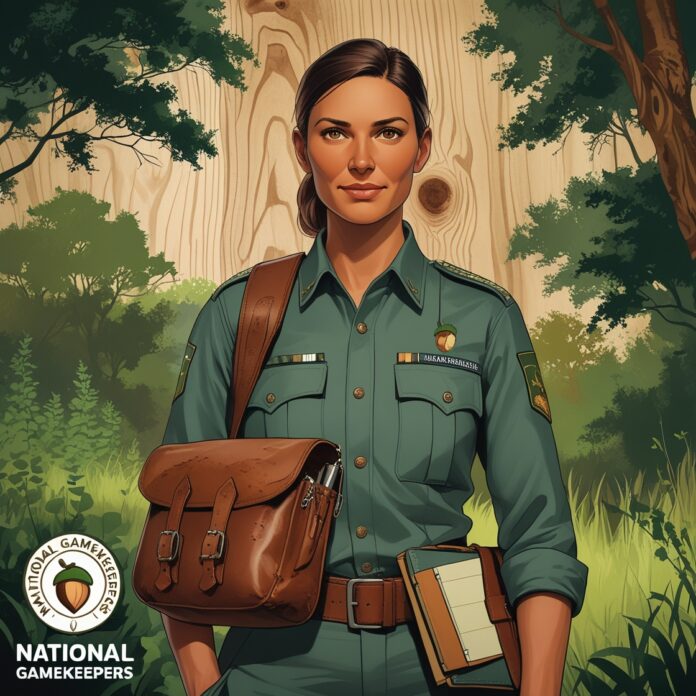The National Gamekeepers Organisation (NGO) plays a vital role in the management and conservation of game and wildlife in the UK. Gamekeepers are responsible for maintaining the balance between wildlife populations and the habitats they thrive in, ensuring sustainable practices that benefit both the environment and local communities. This article will explore the various aspects of jobs within the National Gamekeepers Organisation, including the roles, responsibilities, qualifications, and the importance of these positions in wildlife management.
Understanding the Role of Gamekeepers
Gamekeepers are skilled professionals who manage land for the purpose of wildlife conservation and game shooting. Their work involves a variety of tasks, including habitat management, predator control, and the monitoring of wildlife populations. Gamekeepers often work on estates, farms, and nature reserves, where they implement practices that promote biodiversity and sustainable land use.
Key Responsibilities of Gamekeepers
-
Habitat Management: Gamekeepers are responsible for maintaining and enhancing habitats to support various wildlife species. This includes managing vegetation, creating feeding areas, and ensuring water sources are available.
-
Wildlife Monitoring: Regular monitoring of wildlife populations is crucial for understanding the health of ecosystems. Gamekeepers track species numbers, breeding success, and overall biodiversity.
-
Predator Control: To protect game species, gamekeepers may need to manage predator populations. This is done ethically and in accordance with legal regulations to ensure a balanced ecosystem.
-
Shooting Management: Gamekeepers organize and oversee shooting activities, ensuring that they are conducted safely and sustainably. They educate shooters about responsible practices and the importance of conservation.
-
Community Engagement: Gamekeepers often work with local communities, educating them about wildlife conservation and the benefits of sustainable practices. They may also collaborate with schools and organizations to promote awareness.
Qualifications and Skills Required
To become a gamekeeper, individuals typically need a combination of education, experience, and specific skills. While formal qualifications are not always mandatory, they can enhance job prospects. Here are some common pathways and skills:
-
Education: Many gamekeepers have backgrounds in wildlife management, conservation, or agriculture. Relevant courses can be found at colleges and universities, often focusing on ecology, land management, and animal husbandry.
-
Experience: Practical experience is invaluable in this field. Many aspiring gamekeepers start as assistants or volunteers, gaining hands-on experience in habitat management and wildlife monitoring.
-
Skills: Key skills for gamekeepers include:
- Observation: The ability to notice changes in wildlife behavior and habitat conditions.
- Problem-Solving: Developing solutions for challenges such as habitat degradation or pest control.
- Communication: Engaging with the public and stakeholders about conservation efforts.
- Physical Fitness: The job often requires physical labor, including walking long distances and working outdoors in various weather conditions.
Job Opportunities within the National Gamekeepers Organisation
The National Gamekeepers Organisation offers various job opportunities, ranging from entry-level positions to more advanced roles. Here are some common job titles and their descriptions:

-
Assistant Gamekeeper: This entry-level position involves supporting the head gamekeeper in daily tasks, such as habitat management, wildlife monitoring, and assisting with shooting events.
-
Gamekeeper: A full-fledged gamekeeper takes on more responsibilities, including managing specific areas of land, overseeing shooting activities, and implementing conservation strategies.
-
Head Gamekeeper: This senior role involves overseeing a team of gamekeepers, managing larger estates, and developing long-term conservation plans.
-
Wildlife Manager: Some gamekeepers may transition into wildlife management roles, focusing on broader conservation efforts and working with various stakeholders to promote biodiversity.
-
Educator/Trainer: Experienced gamekeepers may take on roles in education and training, teaching others about wildlife management practices and the importance of conservation.
The Importance of Gamekeeping in Conservation
Gamekeeping is not just about managing game national gamekeepers organisation jobs species; it plays a crucial role in broader conservation efforts. Here are some reasons why gamekeeping is important:
-
Biodiversity Conservation: Gamekeepers help maintain healthy ecosystems by managing habitats and wildlife populations. Their work supports a diverse range of species, contributing to overall biodiversity.
-
Sustainable Practices: By promoting sustainable land use and wildlife management practices, gamekeepers ensure that natural resources are available for future generations.
-
Economic Benefits: Gamekeeping can provide economic benefits to local communities through job creation, tourism, and sustainable hunting practices. Well-managed estates can attract visitors and generate income.
-
Cultural Heritage: Gamekeeping is a traditional practice in the UK, deeply rooted in the culture and history of rural communities. It helps preserve this heritage while adapting to modern conservation needs.
Challenges Faced by Gamekeepers
While the role of a gamekeeper is rewarding, it also comes with challenges. Some of the common issues faced include:
-
Changing Regulations: Gamekeepers must stay informed about changing laws and regulations related to wildlife management and land use. This can require ongoing education and adaptation.
-
Climate Change: The impacts of climate change can affect wildlife populations and habitats, posing challenges for gamekeepers in managing ecosystems effectively.
-
Public Perception: Gamekeeping can sometimes face criticism from the public, particularly regarding hunting practices. Gamekeepers must engage with the community to promote understanding and support for their work.
-
Funding and Resources: Limited funding for conservation efforts can hinder the ability of gamekeepers to implement effective management strategies. Collaboration with organizations and stakeholders is essential for securing resources.
Conclusion
Jobs within the National Gamekeepers Organisation are vital for the conservation of wildlife and the management of natural resources in the UK. Gamekeepers play a crucial role in maintaining biodiversity, promoting sustainable practices, and engaging with local communities. As the field continues to evolve, the importance of skilled gamekeepers will only grow, ensuring that future generations can enjoy and benefit from the rich natural heritage of the countryside.
In summary, pursuing a career in gamekeeping offers a unique opportunity to contribute to wildlife conservation while enjoying the great outdoors. With the right qualifications, skills, and passion for nature, individuals can find fulfilling roles within the National Gamekeepers Organisation, making a positive impact on the environment and society. ### Career Pathways in Gamekeeping
The journey to becoming a gamekeeper can vary significantly based on individual interests and opportunities. Here are some common pathways that aspiring gamekeepers might consider:
-
Apprenticeships: Many organizations offer apprenticeship programs that combine on-the-job training with classroom instruction. This hands-on approach allows individuals to gain practical experience while learning the theoretical aspects of gamekeeping.
-
Volunteering: Gaining experience through national gamekeepers organisation jobs volunteering can be an excellent way to enter the field. Many conservation organizations and estates welcome volunteers to assist with habitat management and wildlife monitoring, providing valuable experience and networking opportunities.
-
Networking: Building connections within the industry can open doors to job opportunities. Attending workshops, seminars, and industry events can help aspiring gamekeepers meet professionals and learn about job openings.
-
Certifications: Obtaining relevant certifications, such as those in wildlife management or land conservation, can enhance a candidate’s qualifications and make them more competitive in the job market.
The Role of Technology in Gamekeeping
Technology is increasingly playing a role in modern gamekeeping practices. Here are some ways technology is being utilized:
-
Wildlife Tracking: GPS collars and camera traps are used to monitor wildlife movements and behaviors. This data helps gamekeepers make informed decisions about habitat management and conservation strategies.
-
Drones: Drones are becoming popular tools for surveying land and monitoring wildlife populations. They provide a bird’s-eye view of habitats, allowing gamekeepers to assess conditions and identify areas needing attention.
-
Data Management: Software applications are available to help gamekeepers manage data related to wildlife populations, habitat conditions, and shooting activities. This technology streamlines record-keeping and reporting processes.
-
Education and Outreach: Online platforms and social media are used to educate the public about gamekeeping and conservation efforts. Gamekeepers can share their experiences and promote awareness of wildlife management practices.
The Future of Gamekeeping
As environmental challenges continue to evolve, the field of gamekeeping will also adapt. Here are some trends and future considerations:
-
Increased Focus on Sustainability: There will likely be a growing emphasis on sustainable practices in gamekeeping, with a focus on balancing wildlife conservation with land use for agriculture and recreation.
-
Collaboration with Conservation Organizations: Gamekeepers may increasingly work alongside conservation groups to develop and implement strategies that benefit both game species and broader ecosystems.
-
Public Engagement: Engaging the public in conservation efforts will be crucial. Gamekeepers will need to communicate the importance of their work and foster community support for wildlife management initiatives.
-
Adapting to Climate Change: Gamekeepers will need to develop strategies to mitigate the impacts of climate change on wildlife and habitats. This may involve habitat restoration, species relocation, and adaptive management practices.
Conclusion
The National Gamekeepers Organisation national gamekeepers organisation jobs offers a range of fulfilling career opportunities for individuals passionate about wildlife conservation and land management. Gamekeepers play a critical role in maintaining biodiversity, promoting sustainable practices, and engaging with local communities. As the field evolves, the importance of skilled gamekeepers will continue to grow, ensuring the preservation of the UK’s natural heritage for future generations.
With the right education, experience, and commitment, aspiring gamekeepers can embark on a rewarding career that not only benefits the environment but also enriches their lives through a deep connection with nature.


